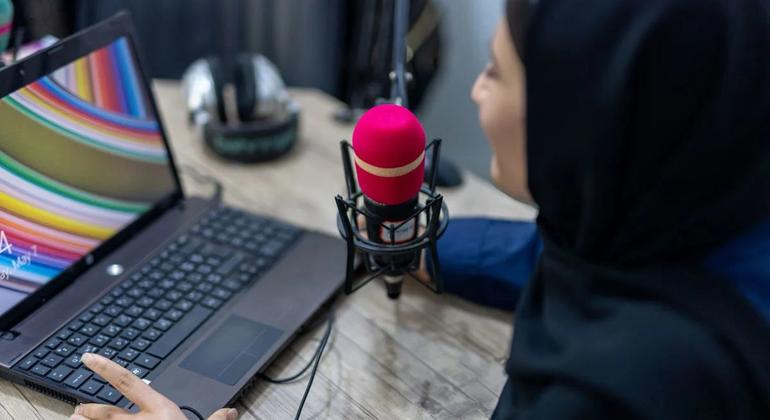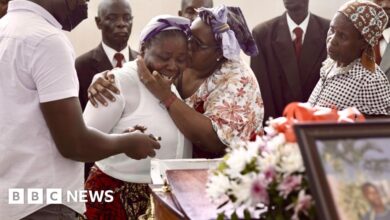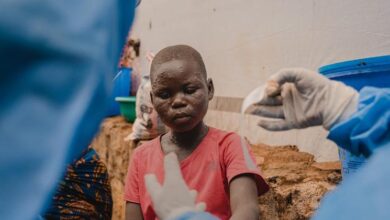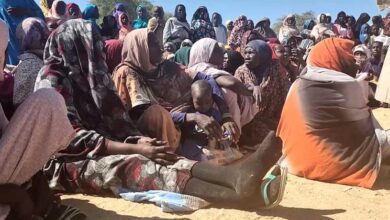Afghanistan: 20 years of steady education progress ‘almost wiped out’

Afghanistan is currently the only country in the world that prohibits women and girls over the age of 12 from receiving secondary and higher education.
The Taliban returned to power on August 15, 2021, and quickly began restricting women’s rights.
Three years after the fall of Kabul, at least 1.4 million girls have been deliberately denied access to secondary education because of the ban.
Including girls who dropped out of school before the Taliban reimposed strict religious laws, there are now nearly 2.5 million girls in the country deprived of education, accounting for 80 percent of school-age girls in Afghanistan.
In addition, the number of students studying at universities has also decreased by more than half since 2021. UNESCO As a result, the country will face a shortage of graduates trained for highly skilled jobs, which will only exacerbate development problems, the report said.
Equally powerful impact on primary education
Although girls’ education is still technically allowed up to the age of 12, the number of children attending primary school has dropped sharply since 2021.
New UNESCO data shows Afghanistan will have just 5.7 million girls and boys in primary school by 2022, compared with 6.8 million in 2019.

Girls and women across Afghanistan have been denied access to secondary education since the Taliban took power.
This decline in primary school enrolment is a result of the Taliban’s decision to ban female teachers from teaching boys, exacerbating the teacher shortage. It can also be explained by parents’ lack of motivation to send their children to school, in an increasingly difficult socio-economic environment.
There are concerns that rising school dropout rates could lead to an increase in child labour and early marriage.
UNESCO Alternative Learning Methods
Since 2021, UNESCO has set up programmes with the support of local communities in 20 of the country’s 34 provinces. More than 1,000 facilitators, including 780 women, have been trained to deliver literacy courses, benefiting more than 55,000 young people, the majority of whom are girls.
UNESCO also invests in distance learning via radio and television, providing financial support and training to Afghan media outlets that want to develop and broadcast educational programs.
The UN agency continues to call on the international community to fully commit to restoring the right to education for girls and women in Afghanistan, stating that in-person classroom education is the best possible way for everyone to learn.
“The right to education is not negotiable or compromised. The international community must be fully mobilized. to achieve the unconditional reopening of schools and universities for Afghan girls and women,” stressed Audrey Azoulay, Director-General of UNESCO.

Young women flee Afghanistan to Pakistan to study.
The international community must not ‘normalize’ Taliban rule
Meanwhile, 36 independent experts from the United Nations are also calling on the international community not to normalize in fact government in Afghanistan in a joint statement released on Wednesday.
Rights experts report to Human Rights Council and non-UN staff including the Special Rapporteur on the situation of human rights in Afghanistan, Richard Bennett.
“In the past three years, The Afghan people, especially women and girls, have endured a horrific and brutal assault on their rights and freedoms by a regime that lacks legitimacy and inclusiveness.stifles all forms of dissent, represses civil society and the media, and has shown blatant disregard for the principles of justice, non-discrimination, equality and the rule of law,” human rights experts said.
Experts stress that the intentional enslavement of women and girls is so widespread and systematic that it amounts to crimes against humanity, including gender-based abuse.
The situation is so extreme that many Afghans say the best way to describe it is “gender apartheid.”
“The people of Afghanistan deserve to live in a country where the rights, dignity and humanity of all are respected and protected. Now more than ever, the time has come for strong international action to meet their demands with increased protection, support and solidarity,” they concluded.




